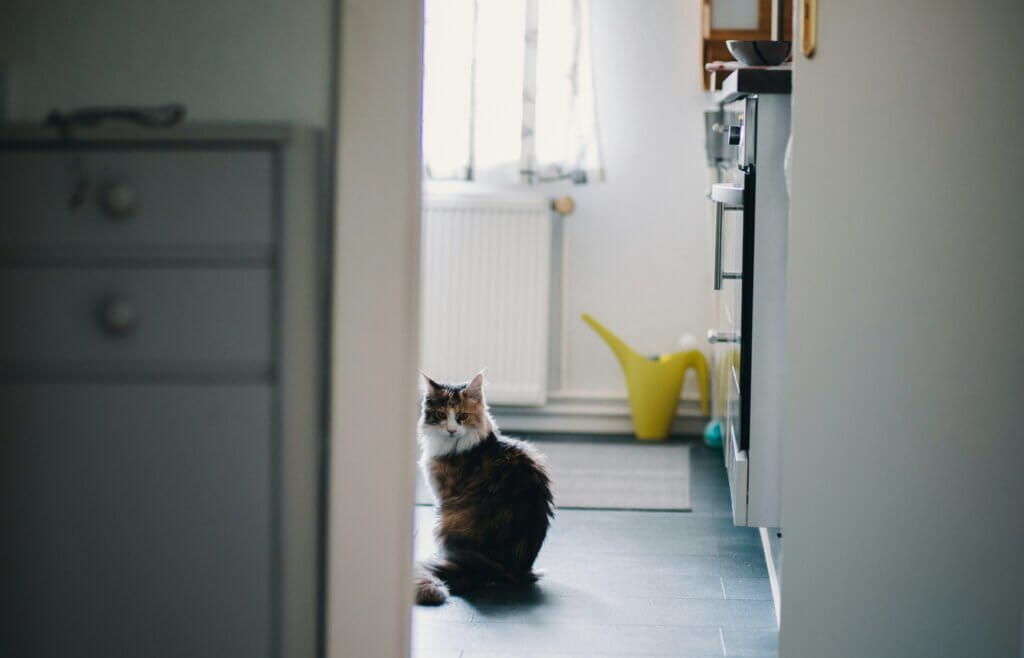For years, cats have been glorified as brave protectors of households due to their well-known hunting prowess. This perception has become deeply embedded in our cultural consciousness. The thought of a stealthy feline stalking its prey brings about feelings of safety and security. However, is the idea that cats are effective pest controllers actually accurate? This piece delves into how cats serve as safeguarders for homes by exploring their skills, boundaries, and the intricate balance between human intervention and innate instincts.

Cats as Natural Predators
Wildcats, creatures perfected over thousands of years for hunting, are the ancestors of cats. Their agile physiques, razor-sharp claws and exceptional sensory abilities make them excellent predators. Even in domestication, felines preserve much of this natural talent, which makes them fierce opponents against tiny nuisances.
Aside from their physical features, cats display a formidable hunting instinct. Even if they have ample food and reside indoors, felines frequently showcase predatory actions like pursuing toys or chasing laser pointers. This inborn behaviour originates from their genes, which can manifest as an innate desire to hunt and capture actual prey.
Throughout history, cats have been significant in managing the population of rodents and are commonly referred to as “mousers.” Their capacity for detecting and eliminating these vermin has been a major factor, leading to their lasting popularity as pets. Cats possess exceptional skills in identifying rodent burrows and reaching inaccessible areas, which enable them to control these cunning pests successfully.
Additionally, the very existence of a cat can function as an agent that discourages rodents. The odour of feline urine and their predatory noises are sufficient to dissuade these pests from settling in homes. This mental consequence, along with their ability to hunt effectively, substantiates the natural pest management role of cats.
The Science Behind the Hunt
Scientific research has unveiled the reasons behind cats’ competence as mousers, going beyond mere hearsay. Scent detection plays a significant role in predator-prey dynamics. To define their territory and repulse intruders such as insects and rodents, felines depend on marking using scents. By releasing pheromones found in urine or faeces, a cat’s presence within a household can generate an insurmountable psychological obstacle for pests passing that threshold to deter them effectively from entering inside it.
In addition, the act of hunting by cats can disturb pest populations as individual pests are eliminated, reducing breeding opportunities and impeding colony growth. Nevertheless, the efficacy of feline exterminators varies according to factors such as the type of pest encountered, a cat’s skill in hunting them down and prevailing environmental conditions. For instance, a feline may excel at catching mice but not be very effective against rats that tend to be more prominent in size and more hostile. Many house-reared or indoor cats might have restricted chances for hunting, especially when residing within urban settings.
Limitations of Feline Pest Control
Although cats have impressive hunting abilities, depending entirely on them to protect your home from pests has its limitations. Various factors can affect how well a cat works as a pest controller.
It’s important to note that not all cats possess an innate ability for hunting. Some felines may exhibit minimal inclination towards chasing after prey and opt instead for the cosiness of indoor living. Even those who are predisposed to hunt might encounter problems in successfully capturing their targets due to certain factors at play. For instance, a cat may find difficulty taking down pests larger than mice or insects capable of evading traditional methods employed by feline predators, such as resistance mechanisms.
In addition, the presence of pests in homes can be attributed to cats who inadvertently bring them along by carrying fleas or ticks on their fur or introducing dead prey. Therefore, it is crucial to regularly groom and clean our feline companions’ surroundings to reduce such risks.
Lastly, it is imperative to contemplate the potential consequences on wildlife. Despite being natural predators, cats’ hunting pursuits can injure favourable bird and small mammal communities. Outdoor felines, specifically, represent a substantial hazard to biodiversity.
Encouraging Feline Pest Control
Creating an atmosphere that enhances a cat’s hunting instincts is necessary to optimise its potential as a pest exterminator. Nurturing exploration and play can motivate innate predatory behaviours, while toys like feathered wands or laser pointers imitating prey aid in sustaining such drives.
The cat’s physical and mental health relies greatly on enrichment. Providing structures such as trees to climb, perches to lounge on, and scratching posts can satisfy their innate behaviours. Creating an environment that stimulates them may also lure your feline friend into exploring where they might come in contact with critters.
Balancing a cat’s natural hunting instincts with being a responsible pet owner is crucial. Regular veterinary care, such as vaccinations and flea prevention, cannot be overlooked. Supervising outdoor cats helps reduce the potential for injury or confrontations with other animals.
It’s essential to bear in mind that although encouraging hunting behaviour may have its benefits, cats cannot be relied upon as flawless pest control solutions.
When to Seek Professional Help
Although cats may prove effective in discouraging certain pests, they do not guarantee complete eradication. Therefore, when faced with severe infestations or resistant critters, it is crucial to enlist the services of a professional pest control provider. Should you notice clear indications of extensive and destructive pest presence — such as repeated sightings of insects or rodents — then contacting experts becomes imperative.
Expert pest control services possess specialised knowledge and treatments to efficiently eradicate pests. They can detect the underlying cause of infestation, apply specific solutions, and maintain regular monitoring to prevent future occurrences. By integrating your feline’s inherent pest-controlling capabilities with professional know-how, you may develop a thorough strategy for managing pests.
Don’t forget that although cats can assist in pest control, it’s important not to rely on them completely. A combination of preventative steps, environmental management, and professional pest control treatment is often essential for achieving long-term success in controlling pests.
Conclusion
Although cats possess inherent hunting abilities and can help manage pests, it is not recommended to solely depend on them for home protection. While certain felines may be proficient at eliminating rodents or bugs, others may lack the inclination. Moreover, relying exclusively on cats can result in infestations brought into the house while still leaving some pest issues unresolved.
Achieving balance is imperative. While stimulating your cat’s innate hunting tendencies with entertainment and eco-stimulants can be advantageous, it requires the implementation of additional pest management techniques to complement the strategy. Engage in habitual cleaning routines, seal potential entryways into indoor spaces securely and resort to traps or repellents for added safeguard against pests thriving indoors. For persisting infestations that are difficult to control independently, consulting a certified pest control service provider is recommended as a practical solution, which may require special expertise beyond individual capacity.
Effective protection of your home and the well-being of your feline companion can be achieved by comprehensively utilising cats as pest controllers while considering their strengths and limitations.







